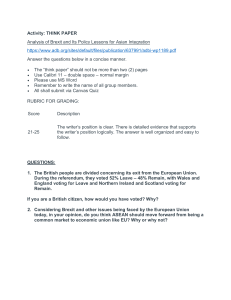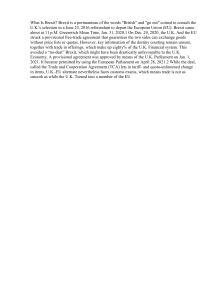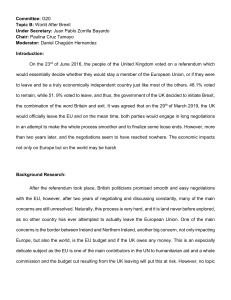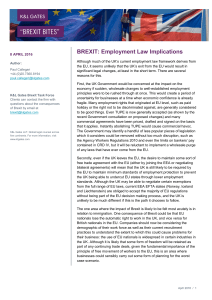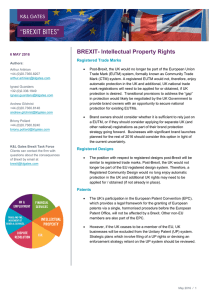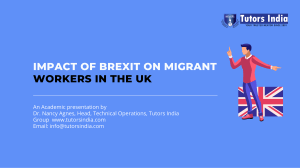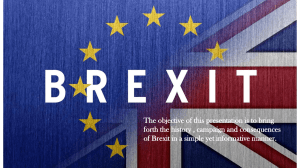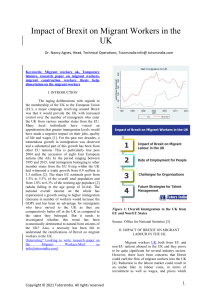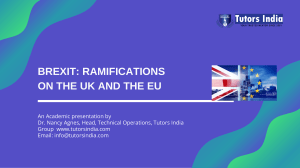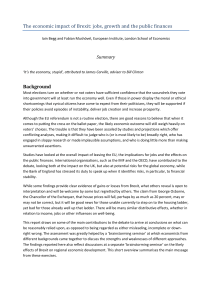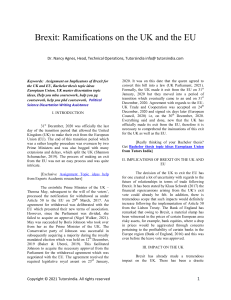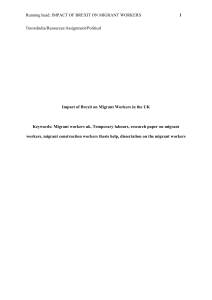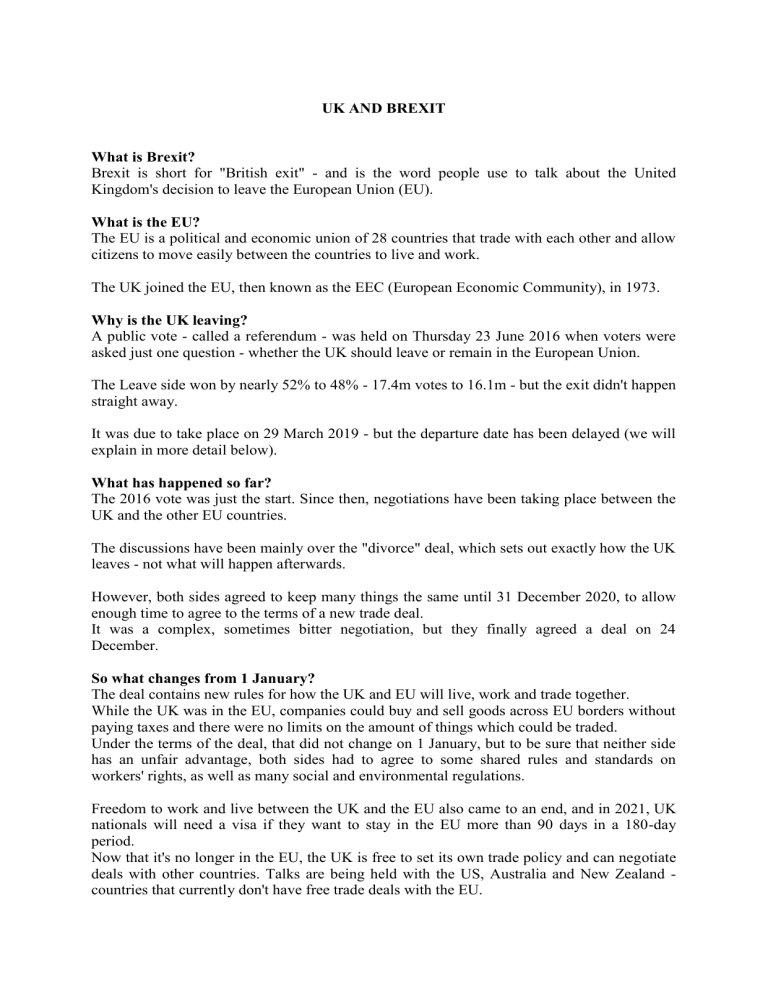
UK AND BREXIT What is Brexit? Brexit is short for "British exit" - and is the word people use to talk about the United Kingdom's decision to leave the European Union (EU). What is the EU? The EU is a political and economic union of 28 countries that trade with each other and allow citizens to move easily between the countries to live and work. The UK joined the EU, then known as the EEC (European Economic Community), in 1973. Why is the UK leaving? A public vote - called a referendum - was held on Thursday 23 June 2016 when voters were asked just one question - whether the UK should leave or remain in the European Union. The Leave side won by nearly 52% to 48% - 17.4m votes to 16.1m - but the exit didn't happen straight away. It was due to take place on 29 March 2019 - but the departure date has been delayed (we will explain in more detail below). What has happened so far? The 2016 vote was just the start. Since then, negotiations have been taking place between the UK and the other EU countries. The discussions have been mainly over the "divorce" deal, which sets out exactly how the UK leaves - not what will happen afterwards. However, both sides agreed to keep many things the same until 31 December 2020, to allow enough time to agree to the terms of a new trade deal. It was a complex, sometimes bitter negotiation, but they finally agreed a deal on 24 December. So what changes from 1 January? The deal contains new rules for how the UK and EU will live, work and trade together. While the UK was in the EU, companies could buy and sell goods across EU borders without paying taxes and there were no limits on the amount of things which could be traded. Under the terms of the deal, that did not change on 1 January, but to be sure that neither side has an unfair advantage, both sides had to agree to some shared rules and standards on workers' rights, as well as many social and environmental regulations. Freedom to work and live between the UK and the EU also came to an end, and in 2021, UK nationals will need a visa if they want to stay in the EU more than 90 days in a 180-day period. Now that it's no longer in the EU, the UK is free to set its own trade policy and can negotiate deals with other countries. Talks are being held with the US, Australia and New Zealand countries that currently don't have free trade deals with the EU. 1. The following statements are against (A) or for (F) BREXIT? 1.Save millions ($) in fees and invest this money in new industries. 2.Leaving doesn’t mean reduced immigration. UK would have to accept the free movement of people in order to remain in the European common market. 3.Britain can negotiate a new trade relationship with the EU without being a member. 4.EU has one regulation standard for all its members, which reduces red tape and benefits business. 5.A boom in employment as businesses are free from EU laws. 6.The UK can return control over employment law, health and safety measures, where it disagrees with EU regulations. 7.Savings outweighed by the costs to keep access to single market. 8.Britain can change the immigration system that offers an open door to EU citizens and blocks non- EU immigrants who could contribute to the UK. 9.Britain avoids exporting tariffs and red tape, which is important as 45% of its exports go to EU. 10.Job losses when companies move to lower-cost EU countries. 2. Put the arguments of ex.1 under each of the following categories: Against Argument about:For Trade Immigration Regulation Jobs For Membership fee 3. What happens next? Check () the topics mentioned in the video: Video : https://www.bbc.com/news/av/uk-politics-eu-referendum-36616378 The new prime minister UK current status in the EU New referendum UK choices regarding business with the EU UK/EU citizens’ status The collapse of the EU 4.All the following are wrong. Correct them, then watch the video again to see if you are right. 1. 2. 3. 4. 5. 6. The UK will leave immediately. Europe’s main leaders are pleased with BREXIT. There is a 2-year process starting now to regulate the exit. The UK will not do business with the EU anymore. EU citizens living in the UK will have to leave. The laws in the UK will still be the same. 5. Watch the video http://www.vox.com/2016/6/24/12024728/brexit-economyeconomists-recession and summarize how European Union works, what its features are. 6. All of the statements below are incorrect; correct them according to the video. 1) Farage thinks EU allows countries enough sovereignty and Brexit will end it. 2) David Cameron says Britain should leave the EU because it will generate more jobs in the UK. 3) Brexit will only affect EU’s economy. 4) Negotiations will be carried solely about the immigrants’ new status after Brexit. 5) After UK’s leaving, the EU will collapse with all the other countries leaving as well.
